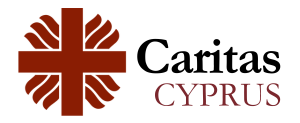World Refugee Day Demands Solidarity and Action
World Refugee Day—June 20—demands that the world show solidarity with people forced to flee. Solidarity means honouring refugees not just with words but with action. Beyond making space for them, …
World Refugee Day—June 20—demands that the world show solidarity with people forced to flee. Solidarity means honouring refugees not just with words but with action. Beyond making space for them, …
Every year on June 20, the world honors the strength and courage of people who have been forced to flee their home country to escape conflict or persecution. Caritas Cyprus …
On June 13, organizations from across the island—including Caritas Cyprus—gathered in Nicosia’s Faneromeni Square to mark World Refugee Day 2025. Together—and with those who find themselves in Cyprus far from …
Caritas Cyprus welcomed the visit of colleagues from the Caritas Association of the Diocese of Augsburg in Germany on April 30. In Cyprus as part of an EU Erasmus+ mobility …
Around the world, Caritas organizations are involved in learning programs for children, and engaged in educational corridors and scholarships as well as distance learning projects for migrant and refugee students. …
To adjust and progress, migrant women need access to information, services and training tailored to their needs as newcomers to Cypriot society. Becoming self-reliant and able to provide for a …
Through a grant from the Dutch Council for Refugees’ Step-Up Fund, Caritas Cyprus is working to develop its communications, outreach and fundraising capabilities to better accomplish its mission over time. In addition …
Caritas Cyprus welcomed the opportunity to discuss its work in support of vulnerable people with Frontex—the European Border and Coast Guard Agency—as part of an awareness session for deployed Return …
As part of a public session on “Asylum in Cyprus and the EU Charter of Fundamental Rights” and pulling from Caritas Cyprus’ experience at the grassroots level, Caritas Cyprus’ Elizabeth …
